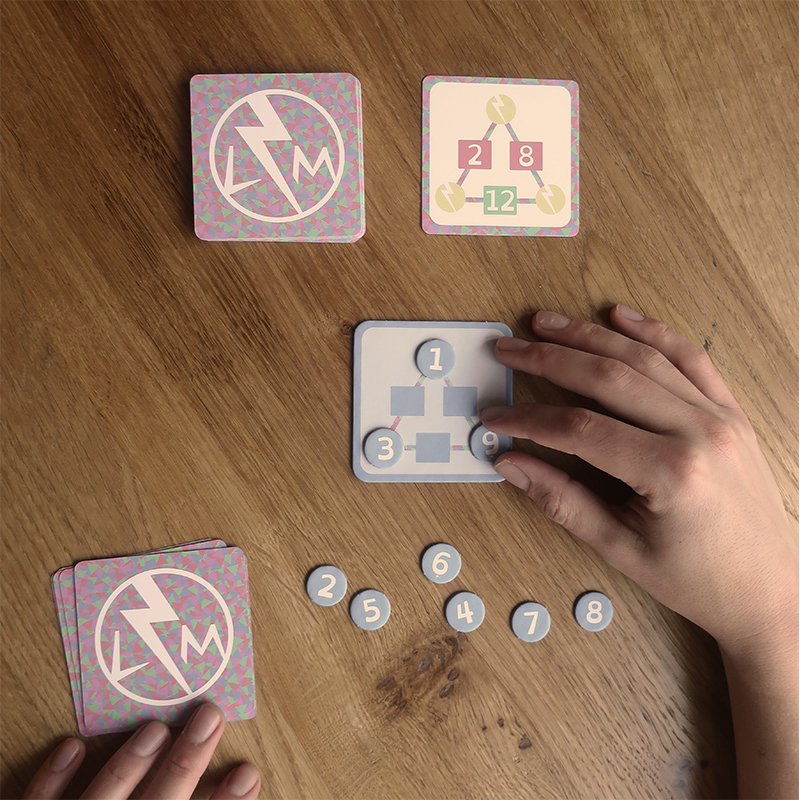
Building maths skills through play for children aged 7+
Maths is not every child’s favourite subject (I know it wasn’t mine at school!) and as a result, you might face some resistance when encouraging your child to practice their maths skills.
This is because it is often presented in a way that is abstract and harder to personally connect to, in comparison to other subjects like History and Science.
However, maths is not just about numbers and formulas, it actually has a lot to do with problem-solving and creative thinking!
Games that challenge these skills offer a fun way to help children improve their understanding of maths at home. They may not even realise that while they are playing, they are actively developing their maths skills.
How can games support your child’s math ability?
By providing hands-on, visual learning, games can encourage children to think mathematically and visualise different solutions and patterns. These are the logical thinking skills that will help them to tackle difficult maths problems.
Lampogo 3 is one such game that is built around puzzles, requiring the use of different problem-solving strategies. It is an award-winning, fun maths puzzle-solving game that has been recommended by both the Good Toy Guide and National Numeracy.

Similar to a Sudoku, the puzzles are presented visually which is helpful because it encourages children to think about the structure of sums. The problems are solved by moving counters, which also makes the game accessible and removes barriers of reading and writing.
As children use their reasoning skills to find the answer, they build confidence and in the play setting there is less pressure than in the classroom to “get it right”.
Games that provide the opportunity to play with (and against) others also encourage communication, requiring children to rationalise their answer which gives them the opportunity to use mathematical language.
This develops their understanding of the concepts too by helping to build what is known as ‘number fluency’.
This is where children become able to recall different facts and concepts in maths without thinking about it, meaning they are able to adapt their thinking and use the rules they know to respond to different types of questions.
Maths in the real world
By incorporating mathematical thinking into the gameplay, games like this encourage children to engage in concepts such as multi-step problem solving, spatial reasoning and pattern recognition.
This is also beneficial for their learning in other STEM subjects as it encourages them to engage in processes like observing, planning, trialling and improving.
As children build their confidence, problem-solving skills come in handy as they can apply their knowledge of number rules to creatively use numbers to solve problems in the classroom and in the real world too.

Conclusion
In summary, children often learn the best when they are allowed the freedom to be creative.
Progress in problem-solving and logical thinking often happens when children are having fun and encouraged to look at problems in new ways.
Activities that can be played at home are a fun way to help children boost their skills.
Use games such as Lampogo 3 that offer the opportunity for your child to:
- Visualise numbers and sums
- Express their working out using mathematical language
- Problem-solve in creative ways
This will help them to develop valuable skills that they can apply to their maths learning.





